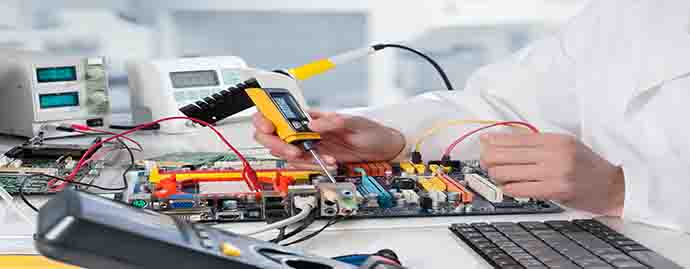| Start Date | End Date | Country | City |
|---|

 +966 920007771
+966 920007771

Objectives
Upon successful completion of this training program, the participants will learn the following:
- Features of various types of Uninterruptible Power Supplies
- Uninterruptible Power Supplies selection for varies applications
- Uninterruptible Power Supplies construction and Design
- Uninterruptible Power Supplies Operation
- Uninterruptible Power Supplies Maintenance and Installation
- Uninterruptible Power Supplies troubleshooting
Outlines
Day 1:
- UPS Structure
- Rectifier
- Inverter
- Battery
- Static Transfer Switch
- UPS Needs and Applications
- Transients
- Harmonics
- Sags
- Swells
- Frequency Disturbances
- Over Voltage Under Voltage
- Grounding
- UPS Selection
- Emergency Power Lighting
- Startup Power
- Mechanical Utility System
- Refrigeration
- Heating
Day 2:
UPS Types
- Double Conversion
- Single Conversion
- Ferroresonant
- Line-Interactive
- Online ("True")
- Microprocessor
UPS Configurations
- Double-conversion systems without bypass
- Group 2: Double-conversion systems with bypass
- Group 3: Single-conversion systems without bypass
- Group 4: Single-conversion systems with bypass UPS Operation
Solid-State Switches
- Diode
- Thyristor
- Power Transistor
- MOSFET
- IGB
Day 3:
Rectifiers and Chargers
- Uncontrolled Rectifies (Single-Phase and Three-Phase)
- Half-Controlled Rectifiers (Single-Phase and Three-Phase)
- Full-Controlled Rectifies (Single-Phase and Three-Phase)
- Basic Chagrining Methods
- Constant voltage
- Constant Current
- Trickle Charging
- Pulsed Charge
- Float Charge
- .Random Charge
Charging Rates
- Slow
- Fast
Charger Types Inverter Circuits
- Voltage Source Inverters
- Current Source Inverters
- Inverter Circuit Controller
- Square Wave Controllers
- PWM Controller
Day 4:
Batteries
- Stationary batteries in standby service
- Lead-Acid
- Vented Cells (Floodedcells)
- Valve-Regulated Cells
- Nickel-Cadmium
- Pocket-Plate Cells
- Fiber-Plate Cells
- Vented Sintered-Plate
- Installation & Design
- Battery Sizing
- Recharge/Equalize Charging
- State of Charge
- Depth of Discharge 1
- Storage Capacity, Available Capacity and Total Capacity
- Battery Life
- Battery System Short-Circuit Calculation
- Battery-Powered Emergency Lighting
UPS Maintenance
- Preventive Maintenance
- Typical maintenance schedule for a static UPS system
UPS troubleshooting and Testing
- Failure Analysis
- Types of Tests
- Acceptance Tests
- Routine Maintenance Tests
- Special Maintenance Tests
- Types of Testing Methods
- Solid Insulation Testing
- Insulating Liquid Testing
- Protective Device Testing
- Capacity Tests
- Safety
Day 5:
UPS Protection
- Battery charger protection
- Inverter protection
- Static transfer switch protection
- Overvoltage protection
- Equipment physical protection
Reliability of UPS systems
- Applications
- Environmental concerns
- Specification and acceptance testing
- Maintenance and training
- Failure modes
- Management awareness
Who Should Attend
- Electric Engineer/Supervisor/Superintendent
- Plant Maintenance Engineer/Supervisor/ Superintendent
- Electric motor work shop engineer/ Managers
- Instrument and Control Engineer/Supervisor / Superintendent
- Everybody or professional who wants to broaden knowledge or gain benefit from this course
Duration
5 Days










